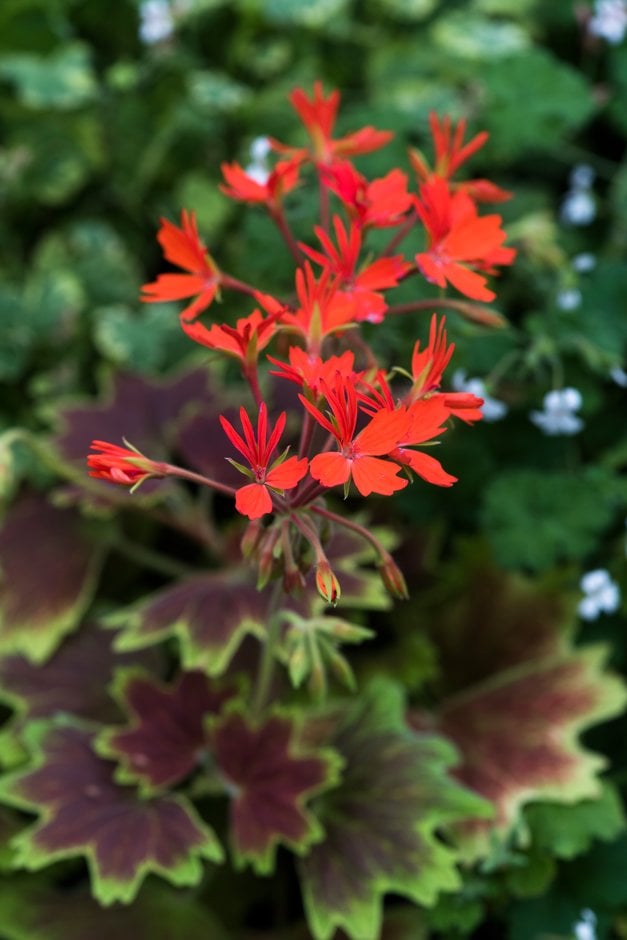Pelargonium 'Vancouver Centennial' (Dw/St/C)
geranium 'Vancouver Centennial'
A compact plant to 25cm in height, with lobed, bronze and golden-brown leaves and clusters of orange-red flowers
Size
Ultimate height
0.1–0.5 metresTime to ultimate height
2–5 yearsUltimate spread
0.1–0.5 metresGrowing conditions
Moisture
Well–drainedpH
Alkaline, NeutralColour & scent
| Stem | Flower | Foliage | Fruit | |
| Spring | Bronze Brown | |||
|---|---|---|---|---|
| Summer | Orange Red | Bronze Brown | ||
| Autumn | Bronze Brown | |||
| Winter | Bronze Brown |
Position
- Full sun
- Partial shade
Aspect
West–facing or South–facing
Exposure
Sheltered Hardiness
H1CBotanical details
- Family
- Geraniaceae
- Native to GB / Ireland
- No
- Foliage
- Evergreen
- Habit
- Bushy
- Genus
Pelargonium can be perennials, sub-shrubs or shrubs, sometimes succulent and mostly evergreen, with palmately lobed or pinnately divided leaves and clusters of slightly irregular, 5-petalled flowers
- Name status
Accepted
- Horticultural Group
- Dwarf pelargoniums are compact Zonal types, a little larger than Miniatures, and growing to 20cm, with single or more typically double flowers; well suited to containers
How to grow
Cultivation
Grow in neutral or alkaline, well-drained soil, prefers full sun but tolerate partial shade. Deadhead regularly. Rain may damage double-flowered varieties so grow these in pots underglass, for zonals suitable for bedding look for seed-raised F1s. See Pelargonium cultivation for further advice.
Propagation
Propagate by softwood cuttings in spring, late summer and autumn
Suggested planting locations and garden types
- City and courtyard gardens
- Cottage and informal garden
- Patio and container plants
- Flower borders and beds
Pruning
Remove spent flowers and trim as required
Pests
May be susceptible to glasshouse whitefly, caterpillars, glasshouse leafhopper, aphids, vine weevil and root mealybugs
Diseases
May be affected by a rust
Get involved
The Royal Horticultural Society is the UK’s leading gardening charity. We aim to enrich everyone’s life through plants, and make the UK a greener and more beautiful place.
